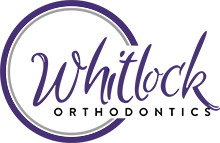4.5 million Americans wear braces at some point in their life.
It’s no wonder since braces give you a perfectly straight smile. But knowing when it’s time to get braces can be a difficult decision for children and adults.
It doesn’t have to be. There are a few surefire ways to tell that you have teeth that need braces.
Keep reading and I’ll guide you through 5 ways to answer the question: Do I need braces?
1. Pain
Your smile should make you feel confident. Not cause you pain. If you have mouth, jaw, biting, or chewing pains then you should consider braces.
Jaw Pain
Is your jaw constantly causing you pain or discomfort? It might be because your teeth are misaligned.
While severe jaw pain may be due to something requiring jaw surgery, many cases have a less expensive option. Braces are a more affordable and less uncomfortable way to deal with pain in your jaw.
Mouth Pain
Unlike jaw pain, mouth pain is due to problems with specific teeth rather than a whole row of teeth.
You may have a perfect bite, but overcrowding, gaps, and overlapping teeth can cause excruciating mouth pain.
Braces pull these problem teeth into a more comfortable position. That way you won’t have to keep dealing with mouth pain as an adult.
Pain when Biting and Chewing
If you experience discomfort while eating or chewing gum, you might benefit from braces.
Pain while biting and chewing may also be due to:
- a cracked tooth
- tooth decay
- loose filling
- infected tissue inside the tooth
However, mild pain issues may have similar causes of mouth pain. Braces can help relieve biting and chewing pain when it’s due to bite and jaw problems.
2. Issues with Bite
You may have perfectly straight teeth, but is your bite aligned correctly? This may be the most common way of answering the question, do I need braces?
Overbite
You may have an overbite if your upper teeth significantly overlap your lower teeth.
A slight overbite is normal. However, if overlap becomes severe, it can cause issues like premature tooth wear. To check for a severe overbite, make sure you can see your lower teeth when you clench your jaw.
Can’t see your bottom teeth? Then you would benefit from getting braces.
Underbite
If you have an underbite, your lower teeth overlap your upper teeth.
Even a slight underbite can cause problems. For example, your bottom teeth may wear against your front top teeth.
Anyone with even a mild underbite should consider getting braces.
Overjet
An overjet happens when your upper front teeth point outward over the lower teeth.
Overjets can cause serious self-confidence issues. Yet too intense of an overjet may cause trauma to the front teeth.
During a fall, your teeth are the first point of contact if you have an overjet. Ouch.
Problems with your bite can be easily fixed with braces. If you have a severe overbite, an underbite, or an overjet, you have teeth that need braces.
3. Jaw Problems
Jaw problems are painful, but that’s only one of the reasons you should get braces for issues with your jaw.
Teeth Don’t Meet on Sides
Do your teeth meet on the sides when you smile? If not, you have a crossbite.
Your back teeth should line up when you bite down. When they don’t, you may experience premature tooth wear.
Crossbite is often fixed with braces. More severe cases, however, may require jaw surgery.
TMJ
While you’ve probably heard of TMJ, you may not know that this bite alignment issue can be fixed with orthodontics.
You can tell that you have TMJ if:
- you hear a clicking noise when you open or close your mouth
- have frequent pain in your jaw joint
- feel tender in the jaw, neck, or shoulder
- painful bite
TMJ can be uncomfortable. But the good news is, TMJ caused by a misaligned bite can be fixed with braces.
4. Speech Impediments
Speech impediments are common in children. But these problems sometimes extend into adulthood. Good thing braces can help with issues in speech.
Lisps
Lisps are common in children who are still developing a full set of teeth. Yet this speech problem may persist into adulthood.
If you’re one of the many people who have an adult lisp, braces may help.
Top and Bottom Teeth Gaps
While this is technically a problem with your bite commonly known as an open bite, gaps in teeth eventually affect your speech.
Open bites are caused by prolonged pacifier use in childhood. But you don’t have to suffer the consequences.
Braces can help fix open bites and stop speech problems before they happen.
5. Prevention
If you want to prevent problems because of teeth misalignment in the future, getting braces is the #1 way to do it.
Tooth Decay and Gum Disease
When you get braces to correct issues with bite or jaw problems, you prevent their negative effects, too.
The constant wear and tear of an incorrect bite can take a toll on your teeth by causing tooth decay.
Headaches and Earaches
Headaches and earaches are extremely common among people who need braces.
Misalignments of your teeth or jaw may cause continuous stress to your jaw. This stress can lead to pain in your skull and ears.
Braces fix these misalignments so you won’t have to be in pain.
The Bottom Line: Do I Need Braces?
By now, you should feel more prepared to answer the question: do I need braces?
Pain, bite misalignment, jaw issues, speech impediments, and prevention efforts are all reasons to get braces. But whether you want them for cosmetics or need them for more serious medical problems, braces will give you your dream smile.
Ready to rock your smile with confidence? Schedule an appointment with Dr. Whitlock at the location near you!

